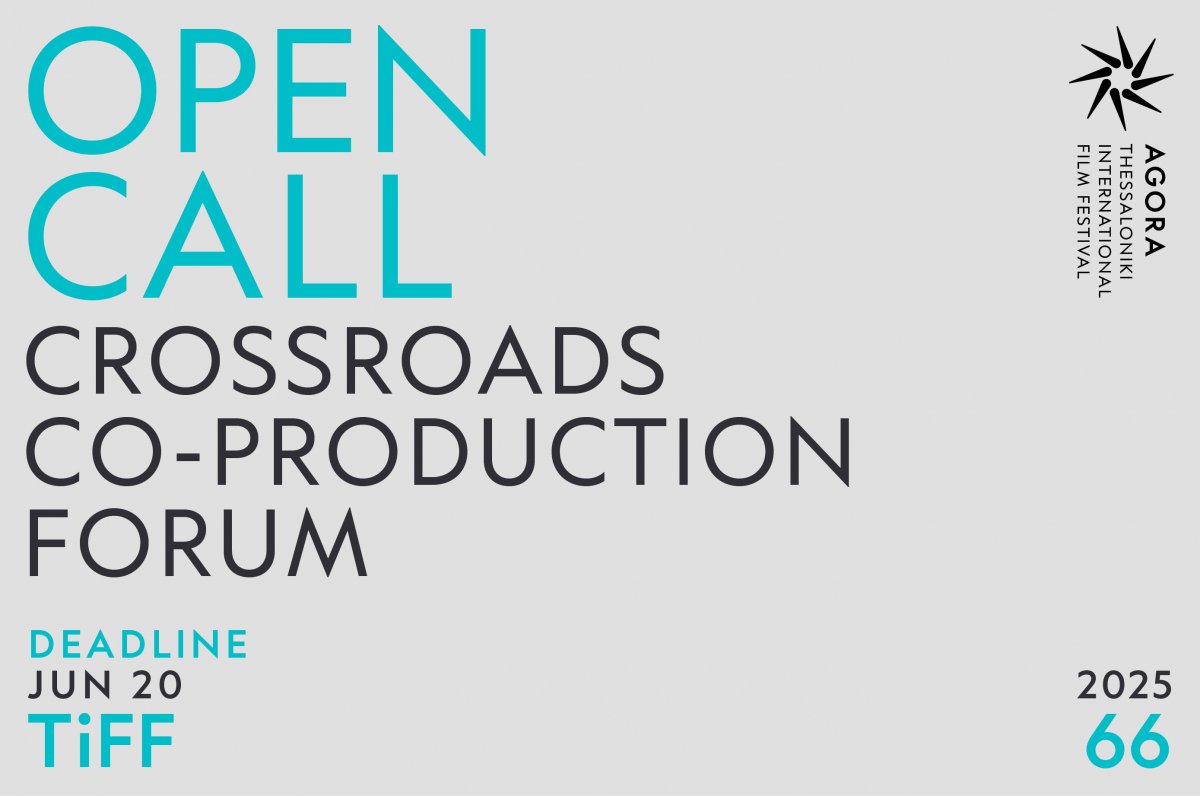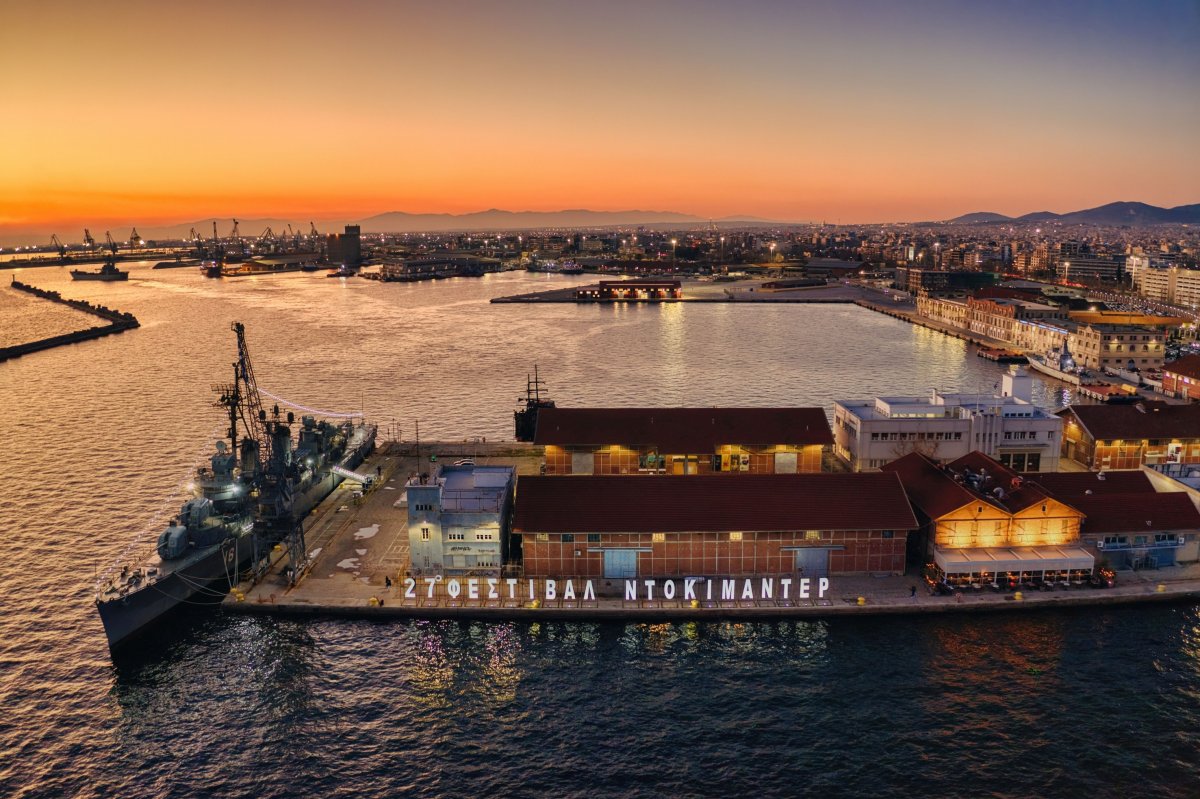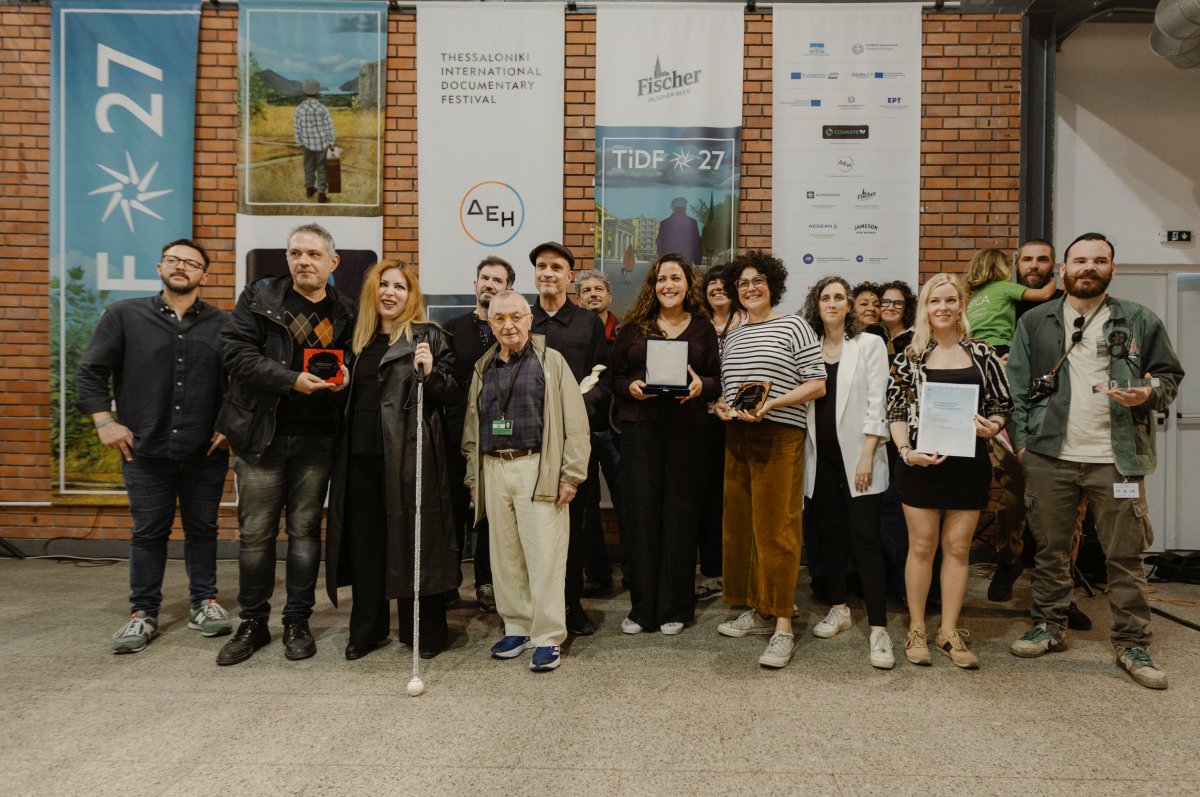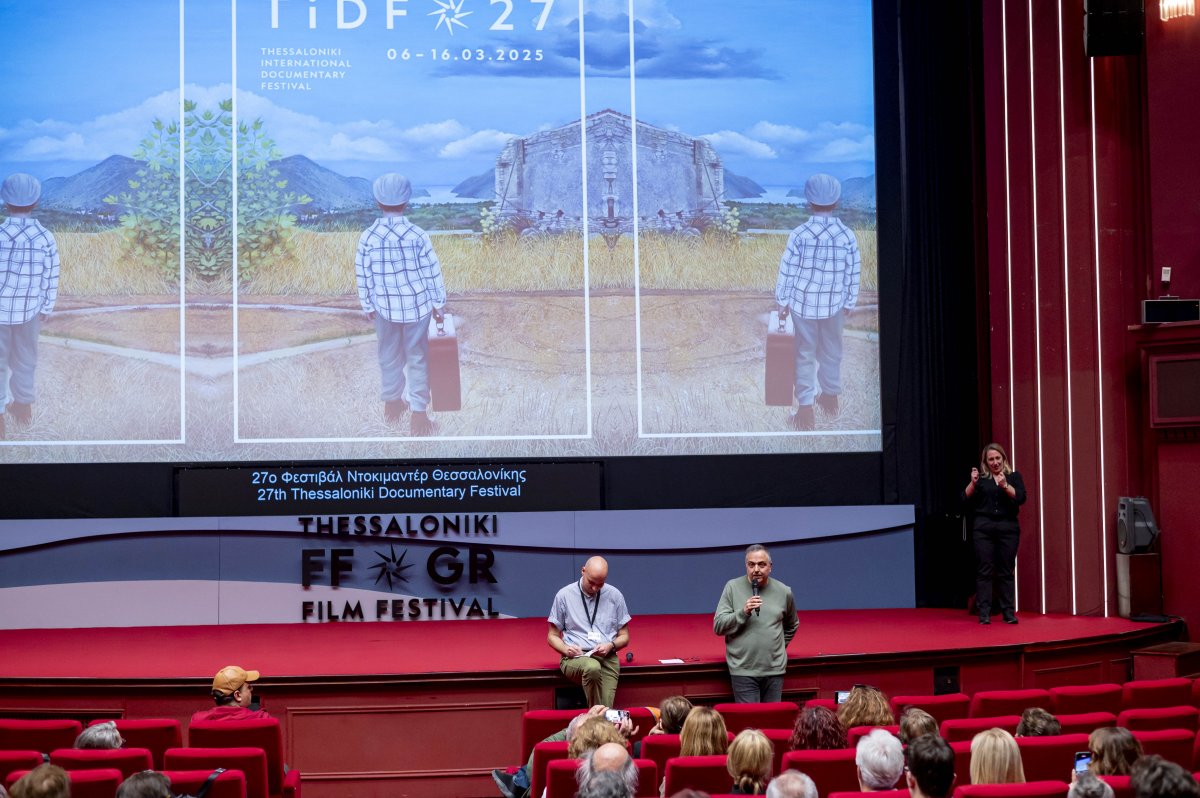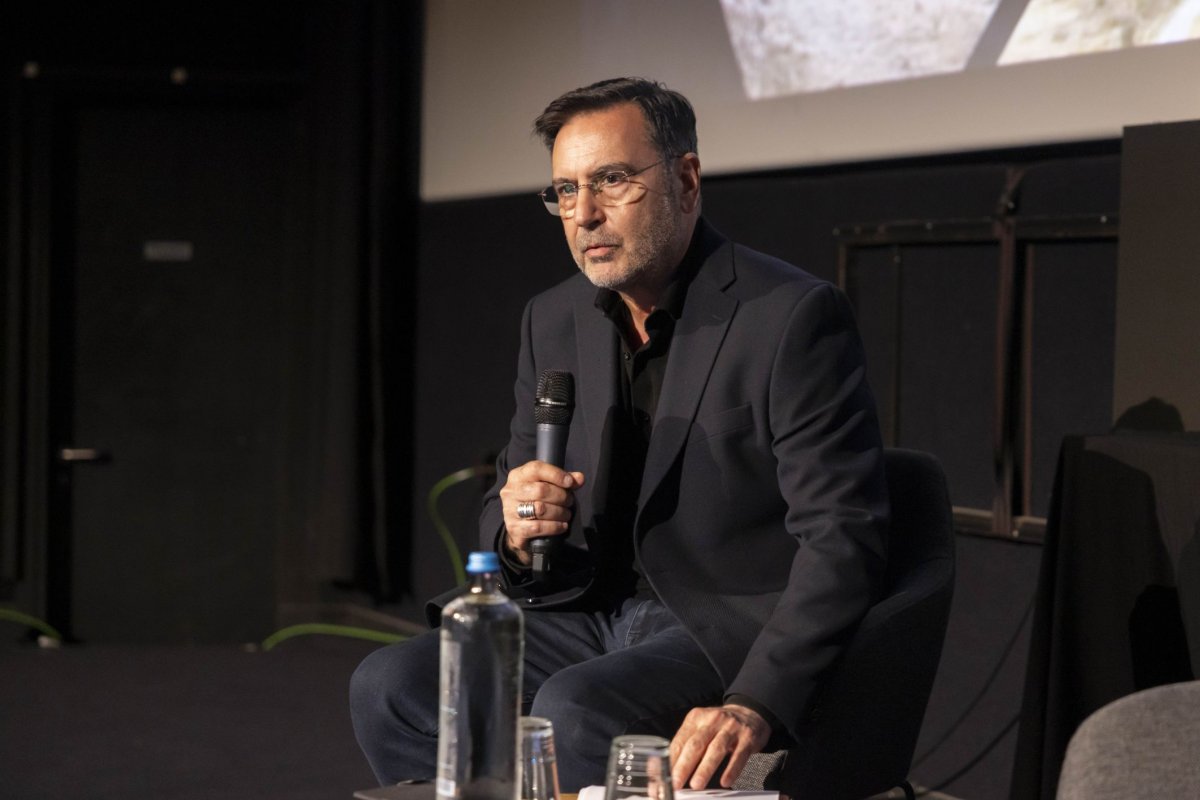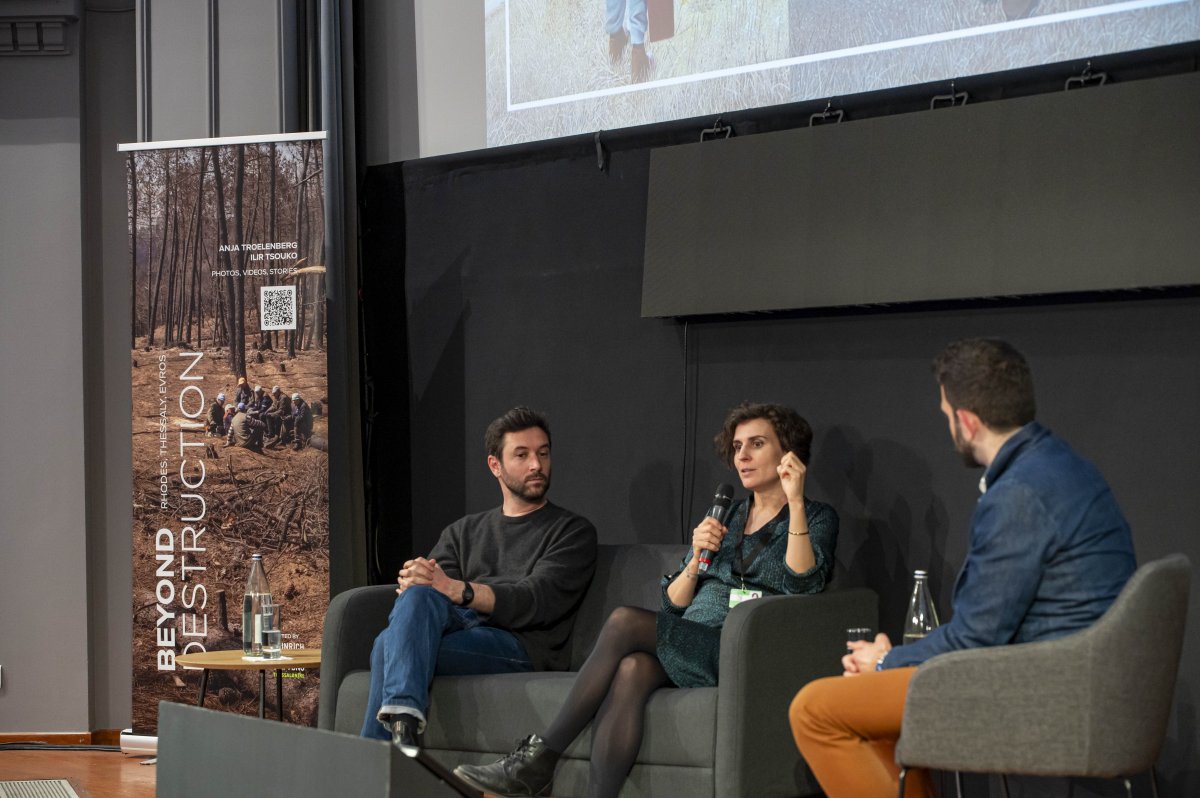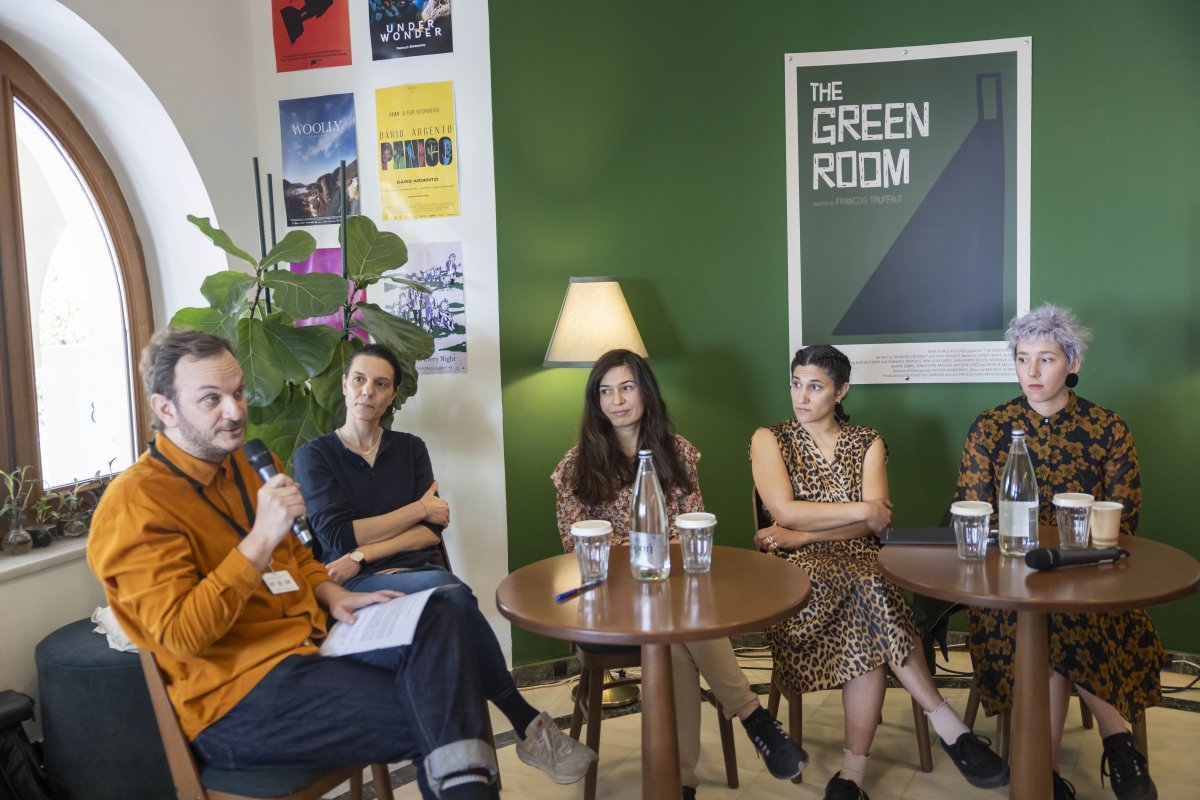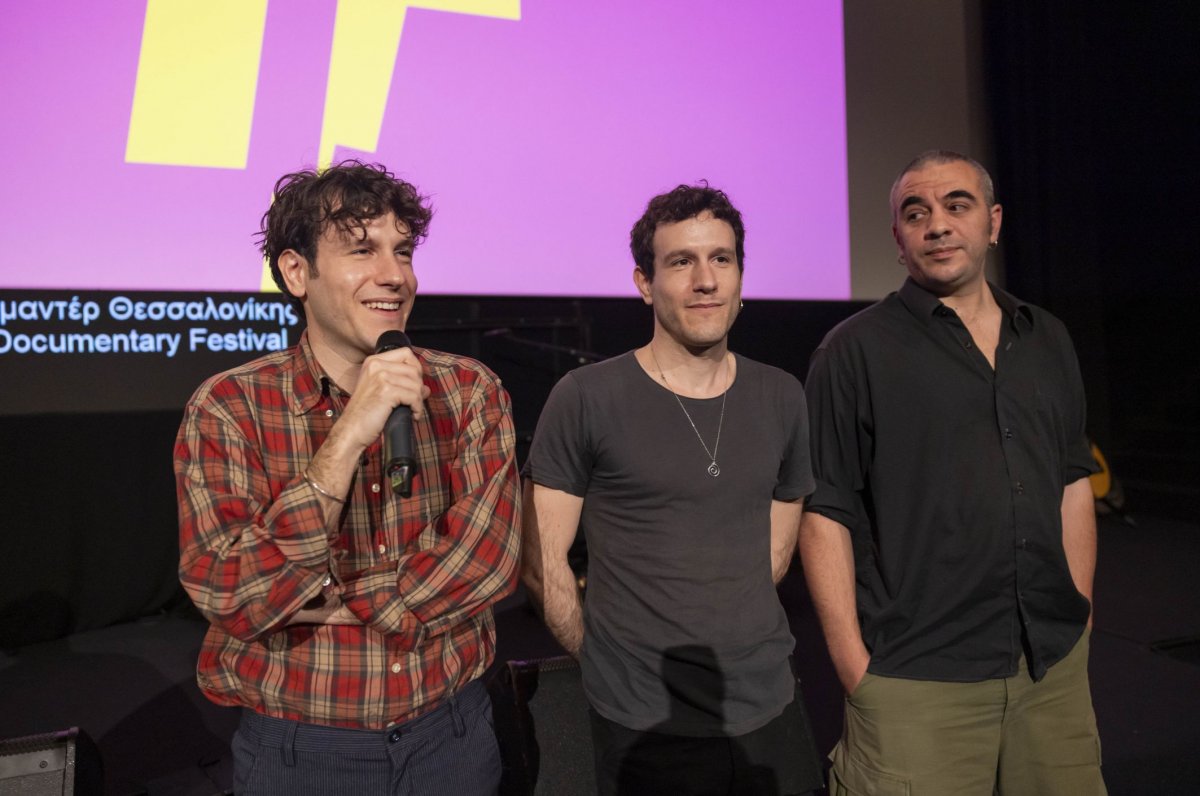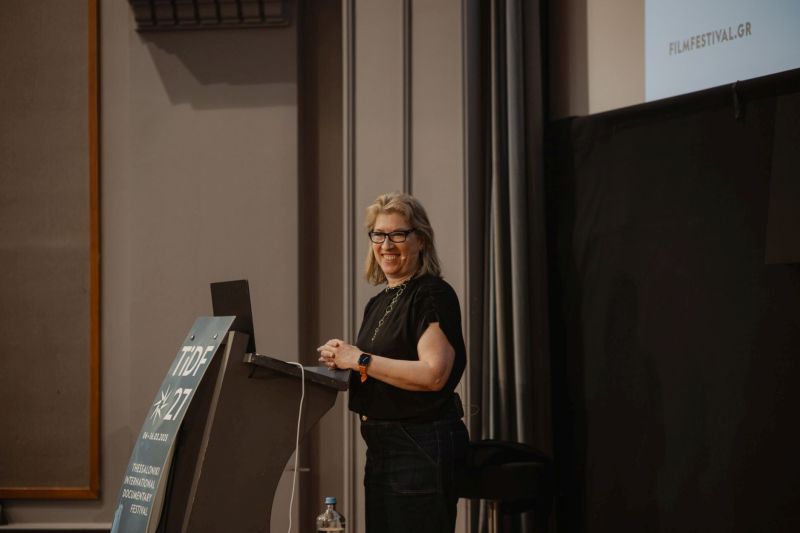The discussion titled Equity & Entitlement in Documentary Storytelling - A distant dream? was carried out within the framework of the Agora Talks of the 25th Thessaloniki Documentary Festival. At the event that took place at MOMus - Museum of Photography, documentary professionals shared practical advice and experiences with the accredited members of the Festival. The panelists were Zeynep Güzel, Berlinale Doc Station Head of Talents, Alex Shiraieff, B2B Docs, and Thomas Kaske, Producer (Kaskefilm). The talk was moderated by Selin Murat, IDFA Markets Manager.
Selin Murat kicked off the talk: “Thank you to the Agora for the invitation. I work as a Markets Manager for IDFA. I specialize in professional development initiatives for documentary filmmakers, with a focus on co-productions with Canada, and I participate in numerous juries for documentary films every year. With better production conditions available to them, filmmakers from the West often begin making documentaries in third countries, intrigued by the seemingly impressive, attractively exotic and supposedly unknown stories that will trigger the interest of the audience and receive promises of state funding. This goes many times hand in hand with the lack of preparation on the filmmakers’ part, the lack of understanding regarding the protagonists’ cultures as well as the sense that the filmmaker has the right to tell a story about a community they don’t belong to. So, they rob this community of their fundamental right to explore their own stories in their own way and in their own time. The international documentary community has started to question these hasty, irresponsible and unethical practices. My initial question therefore, is if you remember the time before all this, when you did whatever you wanted to”.
Alex Shiraieff first took the floor: “I really can’t remember a time when I did whatever I wanted. Maybe others did, but I wasn’t one of them. There were always rules and obstacles. I am associated with a specific region, western Europe, and I try to avoid all this. There are many talented directors in our region, but most of them are excluded from the film industry. There are also those who believe everything is wonderful, that there are rich producers who will fund any film and will let them do anything. Of course, this is not true. In my opinion, when we come across these issues we need to train filmmakers in regards to how the market works, so that they don’t hope for something that will never come. Filmmakers from my area are talented and work based on their experience. These are countries that face a lot of problems, even wars, but young filmmakers want to be part of a different world that fights against every injustice and tragedy. Many filmmakers want to come to our region and shoot films and, as I said, we try to explain to them how the market works”.
Zeynep Güzel continued the discussion. “I am a director based in Berlin and I work as a consultant in labs focusing on narration, script writing, international grants and funding strategies on a regular basis. I am also a member of Berlinale Talents for the Doc Station. We want to make a difference in the documentary community. Because I am a director myself, I always knew how to tend to the filmmakers’ needs and create new opportunities for them. I am not questioning the role of those who make decisions, the “gatekeepers” as I call them, but at the same time I constantly wonder what is the role of our documentary industry in this vital conversation and necessary shift? How can producers, pitching forums, and funds demonstrate a conscious and consistent commitment to equity and accountability? As a Doc Station member I feel very lucky because I have access to filmmakers from all around the world and I see their stories. There is a lot of talent out there”.
Thomas Kaske went on to say: “I have studied Anthropology, so I have been to exotic places. After spending some time in Nairobi, I decided to study Social and Cultural Anthropology and Film. In 2008, I started working for the MA Visual and Media Anthropology at FU Berlin, where I fell in love with documentary filmmaking. After my studies I began working as a producer and archival researcher for the companies Ilanga Films and Molly Aida, based in Berlin. I am constantly learning how to be better. There are different questions you need to ask yourself before you enter the world of co-production. Such as what success means to you and what it means to your co-producer. The most important thing for me is to value the work and fund it accordingly”.
Ms. Murat summed up the above by saying that “the first lesson we take from our talk is that everything is negotiable, there are no rules and the value of your work is not based on the amount of money you spend on it”. The next question to the panelists was about what should be left out and what should stay intact within the film industry. According to ms. Güzel “filmmakers should present themselves. There are many platforms for this purpose, but we have to make filmmakers feel more free in presenting their work. I am constantly in contact with filmmakers and the younger ones particularly, are quite stressed about how to present themselves and what to say. We, who make the decisions, do not give them the confidence to express themselves freely. I’d like for this to change. We all meet with each other to find partners, so why should there be so much stress and sometimes hostility?”.
As Alex Shiraieff stressed: “We need to rebuild our structure and establish regulations. Let’s take Ukraine for instance. It's a country that, in the last eight years, has created a big film industry through a young generation of filmmakers who know how to work in their region. The war brought many to the country with the purpose of working with these filmmakers, and under awful conditions nonetheless. I know there are many initiatives in Europe that help filmmakers maintain their identity and we need to support them because they are the future of filmmaking. Tragedy has made them even stronger. Documentarists work for the society and they need to be compensated accordingly”. “I would also change a lot”, Thomas Kaske mentioned. As he explained: “I work with directors because I love their vision and their stories. We also need to let go of stereotypes. If you are, for instance, a Syrian filmmaker, you shouldn’t feel forced to make a film about the war. I would like to see a different story”, he commented. “I would personally leave the term “decision maker” out of the game. All of us make decisions and together we decide for what is best”, Selin Murat stressed.
To the question of what their advice to young filmmakers would be, Mr. Shiraieff said that “we could pass on to them our knowledge of how the market works. We need strong film unions to fight for change in the right way. At the same time, we need to establish a network. To learn from our co-workers from other countries. To meet up and drink wine at festivals is not only for fun, but mainly for networking”. Ms. Güzel added: “Solidarity among filmmakers is crucial, as is networking. Research is also necessary so that you go to places where you’ll do what you wish without just wasting your money. Also, we need to get organized so that films are presented at festivals and other screening places accurately. Most importantly, you need to know yourself and your work”. According to Thomas Kaske: “Present your work as best as you can so that you find allies. There are good people out there, willing to help you”.
To the audience’s question about how the right project presentation to the decision makers is done, Alex Shiraieff responded: “You need to know who you are meeting with in order to present to them your work. You go to a pitching event not only to get money, but to present an idea for your work. Getting rejected doesn’t mean that your project is done for good. You need to “sell” yourselves, as bad as it may sound. It’s a good thing to rebuild the film industry from scratch, as it happens with unions. I believe this is possible if we all unite and not if we’re independent because that makes us look weak”, he distinctly said.




